We have a confession…
We don’t know what ‘Swimmer of the Year’ means.
This is to take nothing from CSCAA1 Swimmers of the Year Tanner Filion and Sophia Verkleeren. Does it even need to be said? They are both absolutely brilliant swimmers and fantastic competitors at the very top of all Division III.
The problem isn’t the answer (Tanner Filion and Sophia Verkleeren seems like a perfectly reasonable answer to a lot of possible questions2), the problem is the actual question.
Because what is the actual question, exactly?
We are under the impression that there is no question.
It is our understanding that coaches, during Nationals, are directed to a drop-down menu - under the words ‘Swimmer of the Year” - with some suggested nominees and a place for a write-in. One vote for the Men’s Swimmer of the Year and one vote for the Women’s Swimmer of the Year. Whatever that might mean to you.
Are coaches voting for the swimmer who had the best ‘year’ - as the award's name suggests? Or do coaches think they are voting for the athlete who had the best meet at Nationals - as the award's outcomes seem to indicate?3
Either seems fine, but which is it?
So, here’s what we are going to do.
One winner, each event
We are going to try this a different way. We are going to go event by event4 and we are going to assess which athlete won that event this year, based on their larger body of work in that event over the course of the entire season.
Swims at Nationals count, but not any more than swims at other times during the season.
Five best swims
And ‘larger body of work’ means were are looking for the athlete’s five best swims in that event (scored by KSO+5). Where no athletes swam the event five times (like, say, the 1650), we lower that number, but try to keep consistent the number of swims on which athletes are assessed.
It gets a little hairy if you have one athlete that only swam the event a couple times and was among the very fastest, but that isn’t a common problem and where it happens we will take note and give credit where due.
50 Free
Men - Noah Holstege, Calvin
Thanks Noah Holstege for making the first one so easy. Mr. Holstege has five of the six fastest times swum in this event (Bate’s Nathan Berry broke up the perfect game with a 19.71 at Nationals, good enough for fifth overall this season).
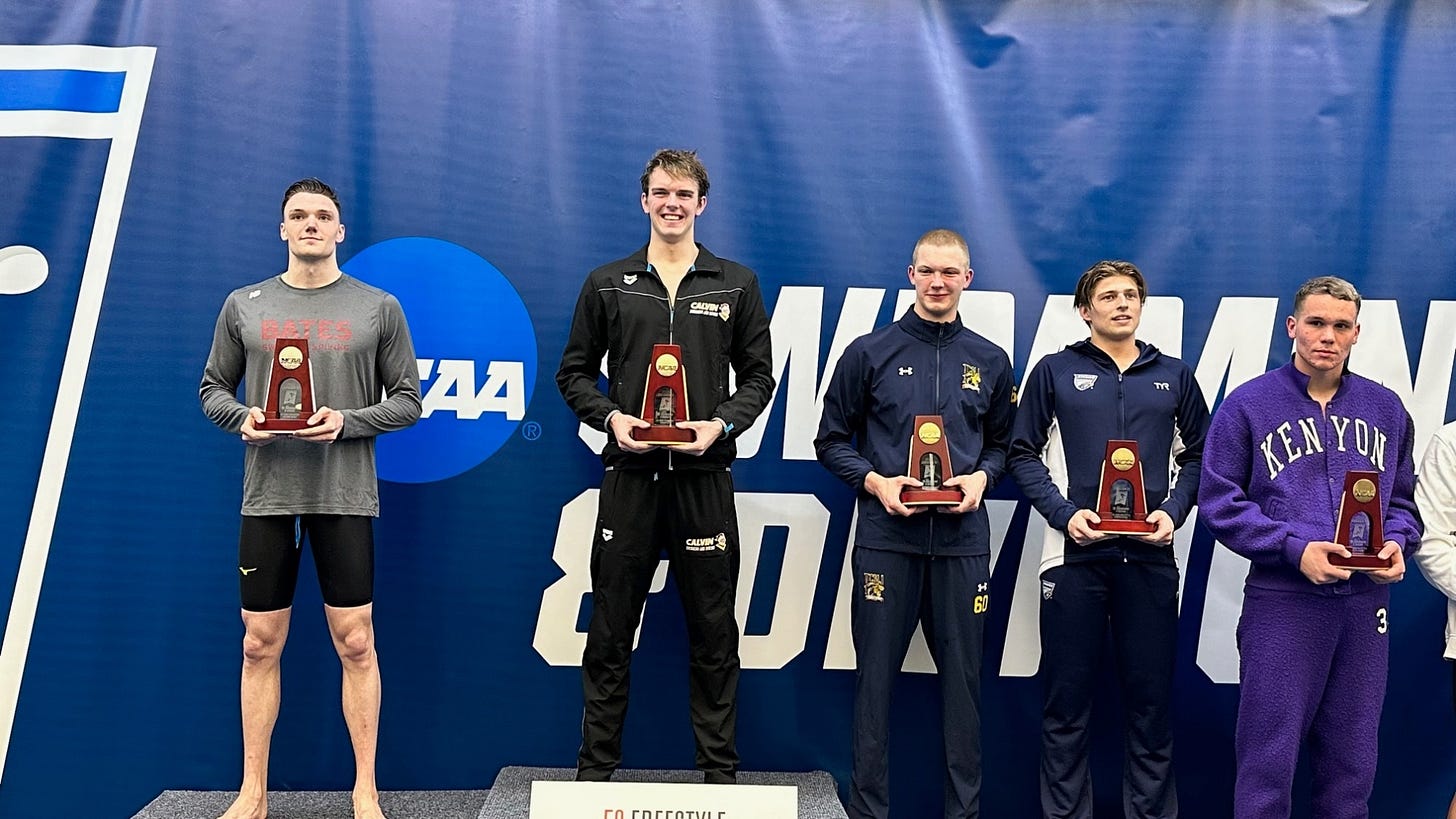
Only Mr. Berry and Emory’s Nick Goudie cracked the top ten. Mr. Holstege holds seven of the ten fastest times in the Men’s 50 Free this season.
Women - Alexandra White, Kenyon
Yes, we know that NYU First-year Kaley McIntyre has the two fastest times in this event this season. Kaley McIntyre is amazing.
Kenyon’s Alexandra White had five of the top ten swims, and the combined KSO+ score of her five fastest swims is higher than any of her competitors. Ms. White gets the nod for having the better year overall.
Denison's Tara Culibrk and (of course) the Emory dynamic duo of Caroline Maki and Taylor Leone cracked the top ten.
100 Back
MEN - Tanner Filion, Whitman
This was all Tanner Filion. As we noted at the time, you could count on him winning this event at Nationals even though the competition he faced - from Adam Janicki, Liam McDonnell, Nathan Berry, and Djordje Dragojlovic - was shockingly strong.
Mr. Filion’s combined KSO+ score was 520.1 and, well, that’s really high. Any combined KSO+ score approaching 520 will be mentioned because…that’s just…really high.
We don’t anticipate a lot of disagreement on this, but if you wanted to attack our method for its counterintuitive elements, this might be the place.
Both Mr. McDonnell and Mr. Janicki had three swims in the top ten, while Mr. Filion had only two. But we are ready to defend this choice if it becomes necessary.
And we are happy to have the chance to point out again that Mr. McDonnell and Mr. Janicki had great years.
WOMEN - Megan Jungers, Emory
Megan Jungers. Not close. Three of the top five swims in this event, four of the top ten, including a division-best time of 53.80.
Yes, we know that the dazzling Olivia Smith, in a swim-like-it-is-your-last-race-ever-for-Kenyon-because-it-is effort, beat Ms. Jungers at Nationals.
Don’t care. It’s Ms. Jungers.
Kate Augustyn and Sophia Verkleeren also cracked the top ten in this event.
100 BREAST
MEN - Jake Meyer, Emory
We knew it would be Jake Meyer. It, obviously, is Jake Meyer. Three of the top five, four of the top ten, the fastest time in the division this year, and a combined KSO+ score of 520.9.
What we didn’t anticipate was Jason Hamilton clocking in with a combined KSO+ of 518.4. Mr. Hamilton was never as fast as Mr. Meyer in this event, but - in terms of overall performance in this event - there was no one between the two of them.
We should note Chicago’s Garrett Clasen had the second fastest time in this event and another time in the top ten (but zero other qualified swims in this event). Mr. Clasen had a great meet at Nationals, including a win in 200 IM. Really impressive.
WOMEN - Jennah Fadely, Kenyon
So, part of the point of KSO+ is to be able to compare performances across events. And no swimmer in Division III had a better year in any event than Kenyon Sophomore Jennah Fadely had in 100 Breast. Her combined KSO+ was 521.8.
If you think we are relying too heavily on our own metric, ok, how about this? The top five swims in this event were all swum by Jennah Fadely.
And the sixth fastest swim in this event was swum by Jennah Fadely. And the tenth. Seven of the top ten.
Plus her post-event interview was hilarious. She was unselfconscious and unfiltered and it was a treat.
What else is there to say?
Edenna Chen, Alex Gill, and Jordyn Wentzel were all terrific again this year and cracked the top ten.
100 Fly
MEN - Jesse Ssengonzi, Chicago
Chicago Junior Jesse Ssengonzi’s performance in this event was exceptional. Three of the top five, four of the top ten, fastest time in the division.
Mr. Ssengonzi’s performance in the 100 Fly is becoming an annual attraction. Last Nationals he chased down division-record holder David Fitch in the final 25 yards. This time, his prelim at Nationals was the fastest 100 Fly in Division III this year.
Kenyon Junior Marko Krtinic ramped it up as the season progressed, and posted his best time in the finals at Nationals, with an event winning time of 46.51.
WOMEN - Lily Klinginsmith, Tufts
Ms. Klinginsmith is a sensation as a First-year with incredible speed and the ability to ramp up the intensity in big meets. She was great. She will be around for years. Lucky us.
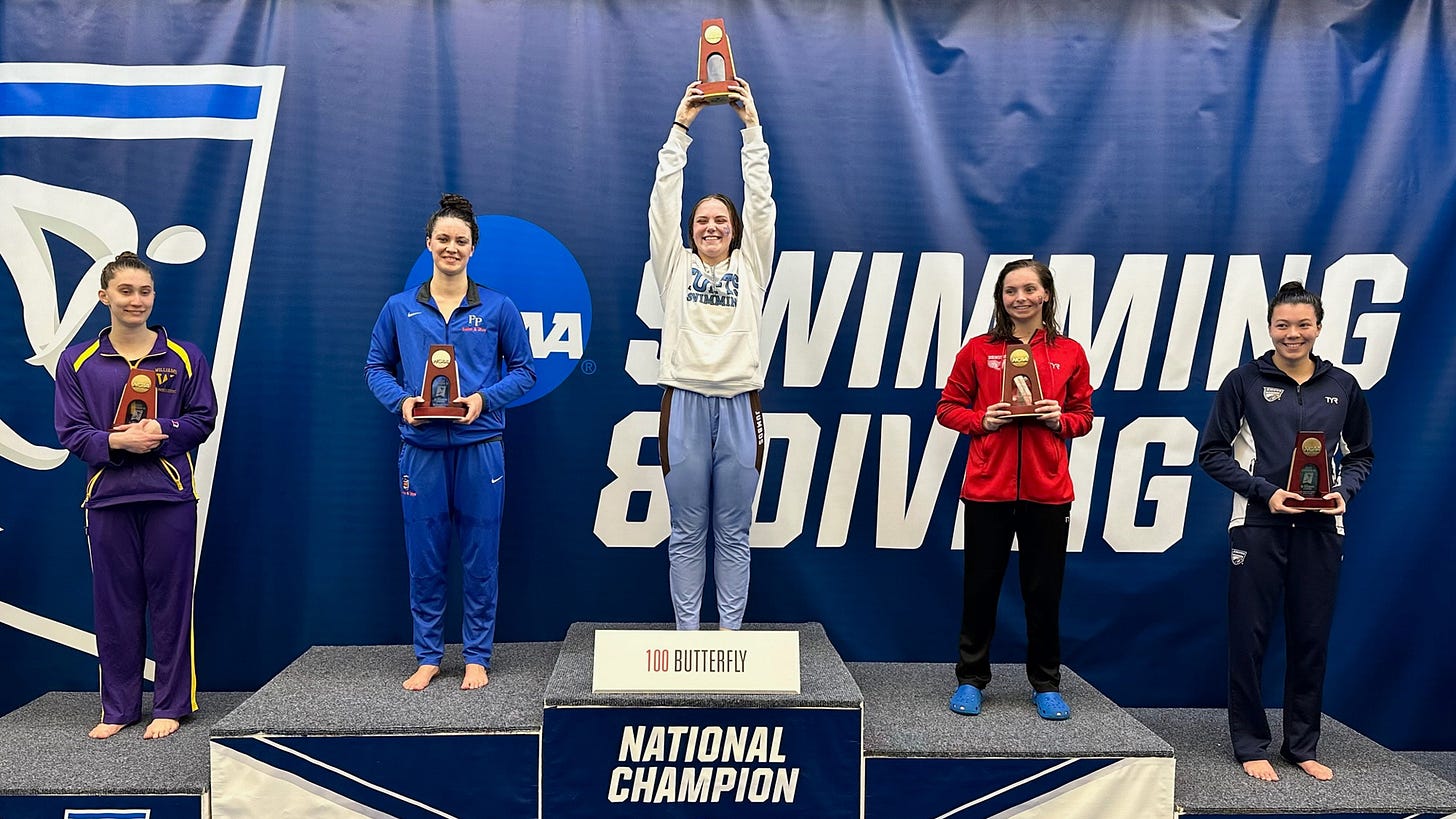
But dude, this was close…really close. Alex Turvey of Pomona-Pitzer was magnificent. The slowest of her five best swims was still good enough for 11th in this event.
Ms. Klinginsmith’s combined KSO+ score was 509.5. Ms. Turvey’s was 509.3. So, it goes to Ms. Klinginsmith - and well earned - but wow, Ms. Turvey was so good.
Others who cracked the top ten: Samantha Kilcoyne (who broke 54:00 at her conference meet), KSO favorite Taylor Leone, and comeback player of the year Emma Pritchett.
100 Free
MEN - Tobe Obochi, MIT
Obviously we would have loved to give this to Djordje Dragojlovic, who had the first and second fastest times in this event. He also swam great at NCACs and had a strong swim at his mid-season invitational.
But when looking at the larger body of work over the course of the year, MIT’s Tobe Obochi edges out everyone else.
With four of the top ten swims this season his combined KSO+ is 508.1 to Mr. Dragojlovic’s 507.6 (and that also surpasses Emory’s Nick Goudie who’s KSO+ total was 506.7).
Mr. Obochi was DFS in this event at Nationals, meaning all of his five fastest times were from earlier in the season. Basically, Mr. Obochi had enough of a lead going into Nationals that no performance there proved sufficient to catch him (though Mr. Dragojlovic sure came close)
WOMEN - Tara Culibrk, Denison
The two fastest times all year were swum by First-years at Nationals - our new friends Lily Klinginsmith and Kaley McIntyre. Both had only four qualifying swims so were not in contention for the top spot. And even if we compared their four swims with the best four swims from the other leaders, Ms. Klinginsmith and Ms. McIntyre still finish third and fourth in the event.
Here are the combined KSO+ scores for the top two finishers:
Tara Culibrk, Denison - 507.7
Caroline Maki, Emory - 507.4
Both were excellent. Both did a lot of heavy-lifting for their teams and had their best races at Nationals. Ms. Culibrk holds a very slight edge in combined KSO+, plus all five of Ms. Culibrk’s best swims are in the top ten. But this is so close and they were both so good.
200 Back
MEN - Tanner Filion, Whitman
Yeh, this guy again. More dominance. Four swims in the top ten, including the first, second, and third fastest swims in the event.
It’s funny. Early in the year, it appeared that Mr. Filion and Yurii Kosian of Kenyon (the first Division III athlete to get an A Cut in any event this season) would be battling it out for the top spot. Mr. Kosian had a very strong season.
But Mr. Filion’s closest competition came from WashU’s Alex McCormick, who also had three swims in the top ten, including two great swims at Nationals.
WOMEN - Sophia Verkleeren, Williams
A comfortable win for Ms. Verkleeren. She posted the best time in the event and had four swims in the top ten.
Her closest competition was Kate Augustyn of MIT, who posted the second best time in this event at her conference meet, and had a top five time at Nationals.
200 Breast
MEN
Similar to the 100 Breast, in that one Emory swimmer was the clear winner with another Emory swimmer the only other athlete in shouting distance, only the names are flipped.
Jason Hamilton had the top three times in the event, had all of his five best swims in the top ten, and got a combined KSO+ score of 519.7.
His closest competition was teammate Jake Meyer (who had the fourth and fifth fastest times in this event).
Jacob Grover of Williams and Brandon Stride of Johns Hopkins also cracked the top ten.
WOMEN - Amanda Wager, Williams
Jennah Fadely and Jordyn Wentzel each had only four swims that qualified.
Though Ms. Fadely had the fastest time in the event, Ms. Wentzel edged her out with a slightly higher combined KSO+ score (Ms. Wentzel - 411.4; Ms. Fadely - 411.0).
Amanda Wager from Williams took this event with five very strong swims including the second fastest time and four times in the top ten. Both her prelim and finals swims at Nationals were top five. It was an impressively strong finish.
Kenyon’s Gabby Wei also cracked the top ten.
200 Fly
MEN - Jesse Ssengonzi, Chicago
Mr. Ssengonzi is obviously great in this event and his combined KSO+ score is the highest in the event. He gets the win.
But it feels a little shaky. Connecticut College Sophomore Justin Finkel has the second, third, and fifth fastest times. If we were counting top four swims, instead of five, Mr. Finkel would have the highest combined KSO+ score.
Frank Applebaum of CMS swam great at Nationals and finished first in finals for the second year in a row, this time with a blistering 1:43.96.
WOMEN - Caitlin Marshall, NYU
With four of the top five and all of her five swims in the top ten, Ms. Marshall won this pretty convincingly. She swam her fastest time in December, and her second fastest time at Nationals. She was just great all year.
Her closest competition was from Alesha Kelly (Chicago), who won the event at Nationals - beating Ms. Marshall by 0.10 - and had three finishes in the top ten.
200 Free
MEN - Pat Pema, Emory
TCNJ’s James McChesney won the event at Nationals (setting a new Division III record), and somehow seems to be having more fun than everyone else.
Good for him and good for that program.
But this event was Pat Pema’s all year long. He got an A Cut at the Denison Invitational in December, finished second at Nationals, and placed four of his swims in the top ten. In terms of combined score, no one else was really close.
Familiar faces Nick Goudie, Justin Finkel, and Tanner Filion also cracked the top ten.
WOMEN - Taryn Wisner, Denison
Kaley McIntyre won this event at Nationals by over a second, and had three top ten times. What a year for Ms. McIntyre.
But, this goes to Taryn Wisner, who had four swims in the top ten, and reached the five swim threshold at least in part because she was the lead leg of Denison’s division-leading 800 Free Relay. Ms. Wisner’s contribution to her team’s national championship was enormous, and her overall body of work was the best.
Denison’s Tara Culibrk also cracked the top ten. Four times. Geez. Denison’s women were so strong in all things 200 Free.
200 IM
MEN
No one reached the five swim threshold and…look for yourself.
Go ahead. Pick your favorite. We don’t have anything to add.
WOMEN - Sophia Verkleeren, Williams
This is a little less vexing on the Women’s side. Ms. Verkleeren had the two fastest times in the event and three of the top ten. Her win at Nationals was the only time all season that anyone broke 2:00 in this event. You can have the crown, Ms. Verkleeren.
Other top tens include Greta Gidley (twice, yeh, Hope!), Augusta Lewis (twice, CMS), Lily Klinginsmith (twice), and of course Jordyn Wentzel.
400 IM
MEN - Danny Sibley, WashU
WashU’s Men are really good. Mr. Sibley finished behind Kenyon’s Bryan Fitzgerald at Nationals (no shame in that - Mr. Fitzgerald has owned this event at Nationals), had two top ten finishes, and had the highest combined score among those with five eligible swims.
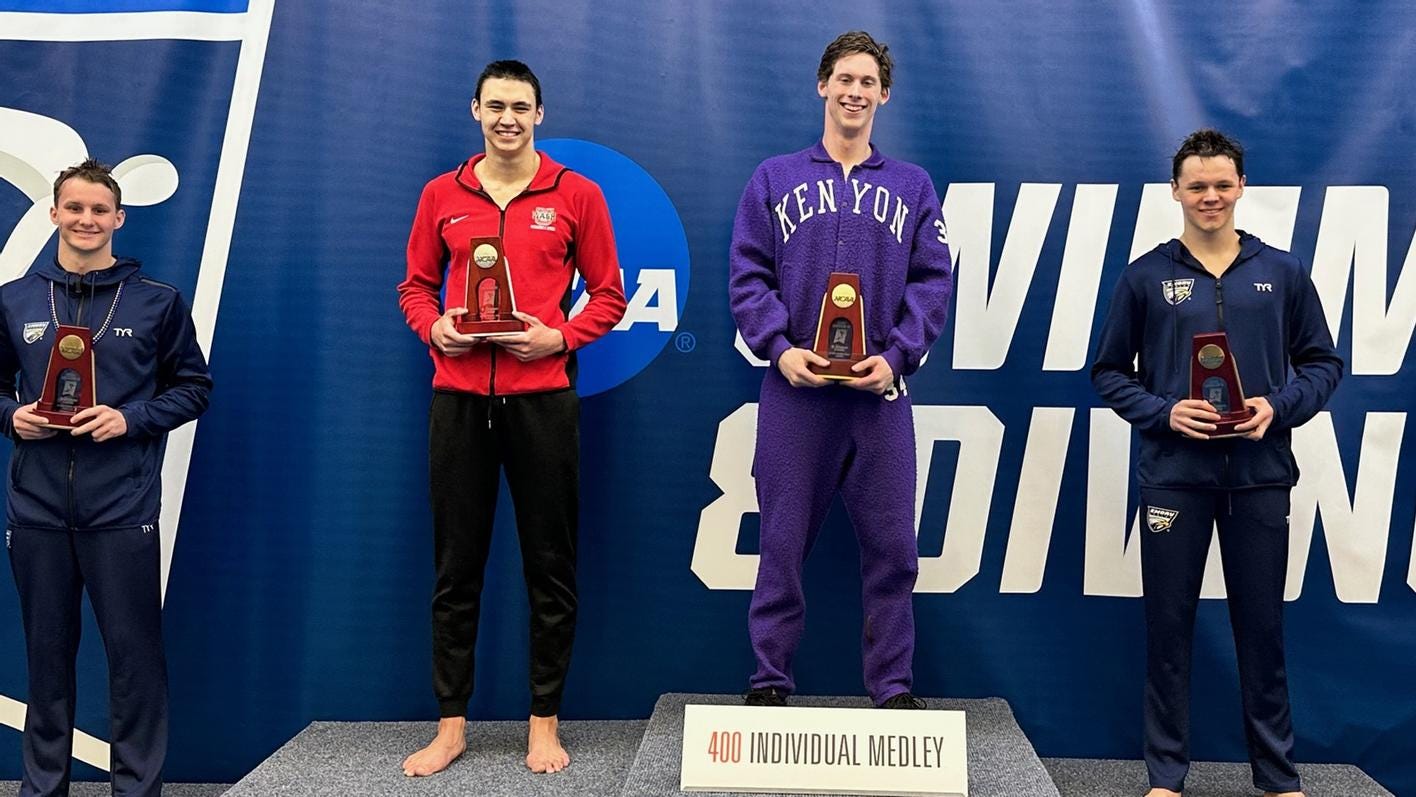
Former KSO guest researcher Crow Thorsen (Emory) had a great year in this event, finishing with the third overall fastest time, and several more very solid swims separating him from the pack.
WOMEN - Sophia Verkleeren, Williams
Another win for Ms. Verkleeren.
At Nationals, Augusta Lewis took this event convincingly, and she also had a great swim at her conference championships. Terrific year for Ms. Lewis in this event.
Ms. Verkleeren was just very very good in this event all year. She put down her best time at her conference championships, and at Nationals added two more times to the top ten. The slowest of her five qualifying times would still have earned her a Nationals invite.
These IM performances from Ms. Verkleeren were really impressive.
500 Free
MEN - Pat Pema, Emory
Again, Pat Pema, and it was not particularly close. He had four top ten times, including the best time in the division, with which he also won Nationals.
Mason Kelber of WashU also had a couple of top ten times and was the closest thing to competition for Mr. Pema. Mr. Kelber had a great season in this event.
It was just Pat Pema’s year, man.
WOMEN - Kristin Cornish, Johns Hopkins
Are you guys sick of listening to us go on and on about Kristin Cornish? No? OK, good.
Mr. Cornish won this event. She won it at Nationals, she has the fastest time, she has three of the five fastest times, and her five fastest swims are all in top ten for this event this season.
Quick note: Ms. Cornish’s fastest 500 Free time this year was from the Blue Jay Invitational. We can’t be sure, but it looks like she was the only swimmer in the pool at that event. Like, literally swimming the 500 by herself in the pool, and she went faster than her winning time at Nationals.
Which is weird, but earlier in the season, Ms. Cornish set the JHU school record (and we would argue that she also set the division record) in the 1000 Free at a meet in Delaware, swimming in a pool by herself. How is that possible?
Denison’s Taryn Wisner had three top ten swims in this event, including the third fastest swim all season. Her teammate Tara Witkowski is the only other swimmer to crack the top ten.
1650 Free
MEN - Kellen Roddy, Johns Hopkins
With an event of this length, swum less frequently, we are making the season-long assessment based on three swims. And no one had three better swims than JHU Junior Kellen Roddy.
But by the slightest of margins.
Kellen Roddy, JHU - 303.8
Connor Vincent, NYU - 303.7
This is as close to a tie as anything we’ve seen in any event all season. If we needed a tie-breaker, Mr. Roddy did swim this event four times this year, so even if he did not have the slightest of leads that might have been enough to push him over. Both these guys had amazing years in this event.
WOMEN - Kristin Cornish, Johns Hopkins
What do you want us to say? Of course, it is Kristin Cornish. She swam the mile three times and has the three fastest times this season. Actually, if we are assessing performance by three swims combined, then no swimmer in the history of Division III has ever swum three Women’s 1650s that fast in one season.
Once again, her closest competition came from Denison’s Taryn Wisner and Tara Witkowski. In a world without Kristin Cornish, those two athletes would be dominant.
But who wants to live in a world without Kristin Cornish? Not us.
Lillian Codd (Williams), Madeleine Dunn (Tufts) and Sloane Donovan (Emory) all made it into the top ten. Outstanding job from those athletes.
Such a long post. We are beat. We are going to attend to some other matters and we will check back in next week.
COMING NEXT WEEK
Beside just looking at times, is there a more sophisticated way to predict who will win events at Nationals?
One KSO reader says 'yes' and to back it up he shared some impressive modeling on who will win their events at Nationals. Before this year's Nationals, he ran the model about 2,000 times.
It is much like a Monte Carlo simulation, and as such assigns percentage chances to who would win which event.
Now that we know the outcome of Nationals, we want to go back and look at the model's output with one major question in mind: 'which outcomes were least probable'?
As fans, we love it when swimmers outperform their seeds. This model allows us a much more nuanced look, permitting comparison across events.
It's awesome.
Caveats abound (and will be repeated). This model is not perfect and only as good as the mean previous results. It is not intended in any way to diminish the hard-work and dedication that it takes for any swimmer to reach Nationals, and we recognize that every athlete is so much more than a probability figure on a spreadsheet.
But this represents an opportunity to bring even more quantitative sophistication to our coverage of the sport. Plus we like to have fun, and love Division III swimming, and we think it would be cool to point out which athletes swam totally out of their minds.
So we are gonna do it. See you next week.College Swimming and Diving Coaches Association of America
Questions like: If you were building a swim team to compete at a nationals-style meet tomorrow, and you could pick from any athlete in Division III, who would you take first?
And yes, we know that at this actual moment their training would be screwed-up, and they’ve been sleeping-in for the past two weeks and enjoying the end of ‘dry season’…it’s a thought experiment, don’t get lost in the weeds
Take a look at the award recipients over the past decade or so, and note the correlation with the athlete who scored the most points for their team at Nationals.
Meaning: every individual event swum at Nationals.
KSO+ is our index (set to 100) of the 16 best times in an event, each season, for the past decade of full seasons.
A score of 100 means your time is about equal to the average of these fastest times, and is a rough proxy for a time good-enough to safely reach finals at Nationals in an average year.
A score of 101 basically means your time is 1% better than the average of those already very fast times.
Indexing to 100 allows us to compare swims across events, without the pitfalls inherent in Performance Points or other metrics tied to a single outlier (a world record in that event, for example).
Definitions
* Division III seasons: 2011-19 & 2022.
* 16 Best Times: The 16 fastest times in that event (to be clear, Men’s 50 Free is one event, Women’s 50 Free is a different event - we are not combining events across gender) in each of the 10 seasons, added together to get a sample of 160 times.
* Time Standard: The average of the 160 times is then converted to seconds. That becomes the ‘time_standard’.
Example
The time standard for Women's 100 Back is 55.48 seconds. Megan Junger's fastest 100 Back is 53.80.
(55.48/53.80) * 100 = 103.12
The KSO+ score for that swim is 103.12. 





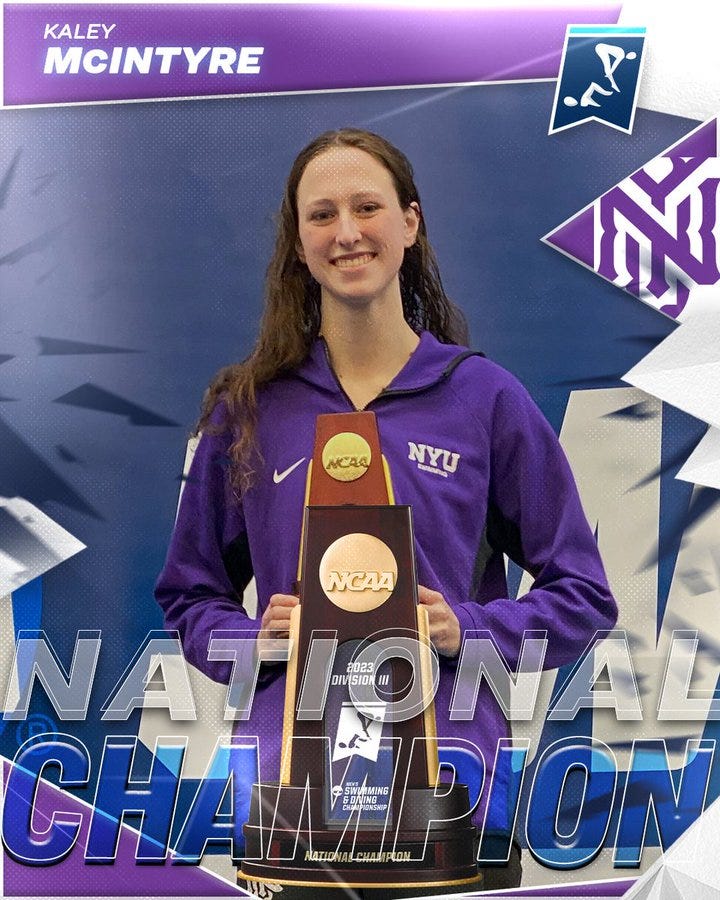

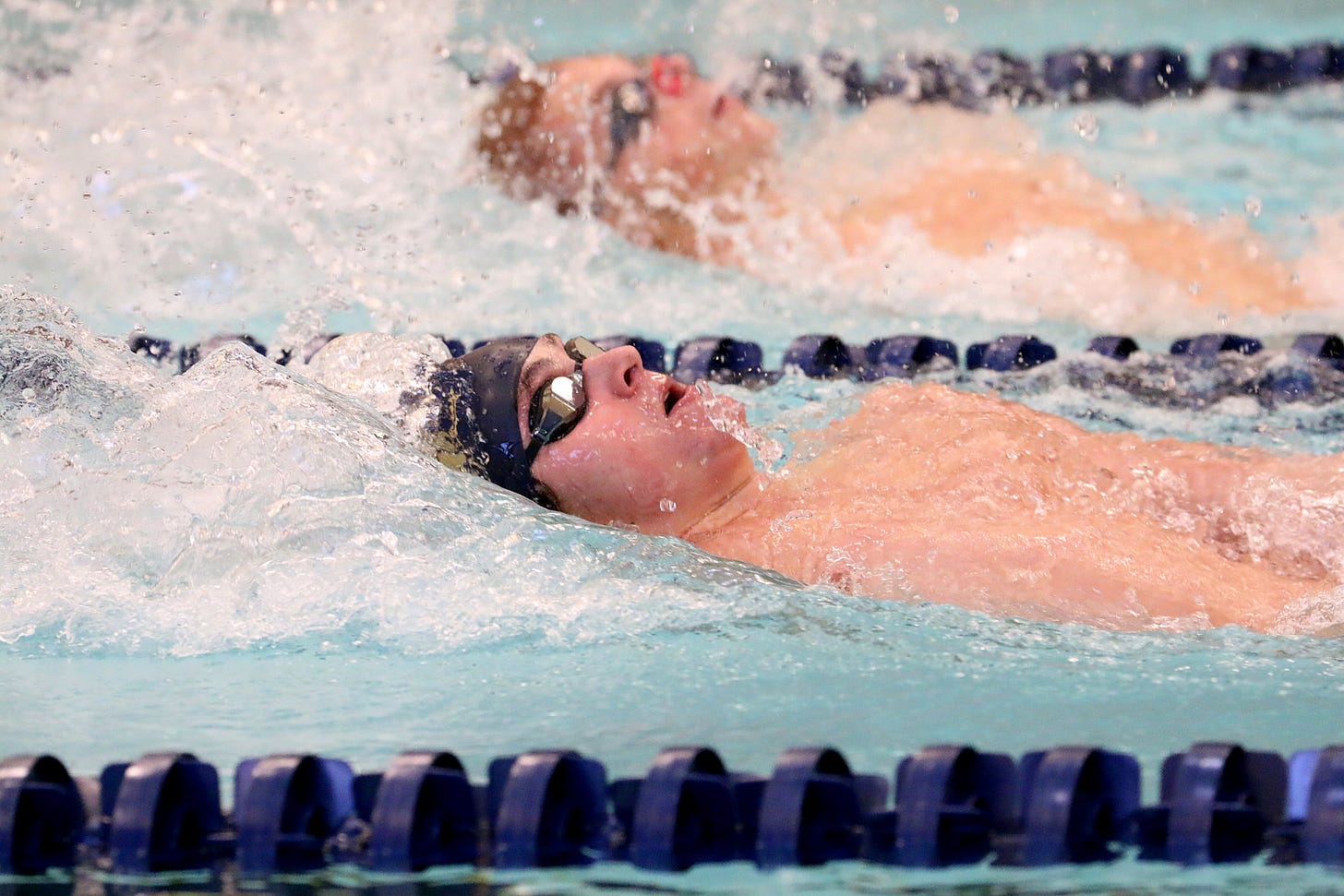
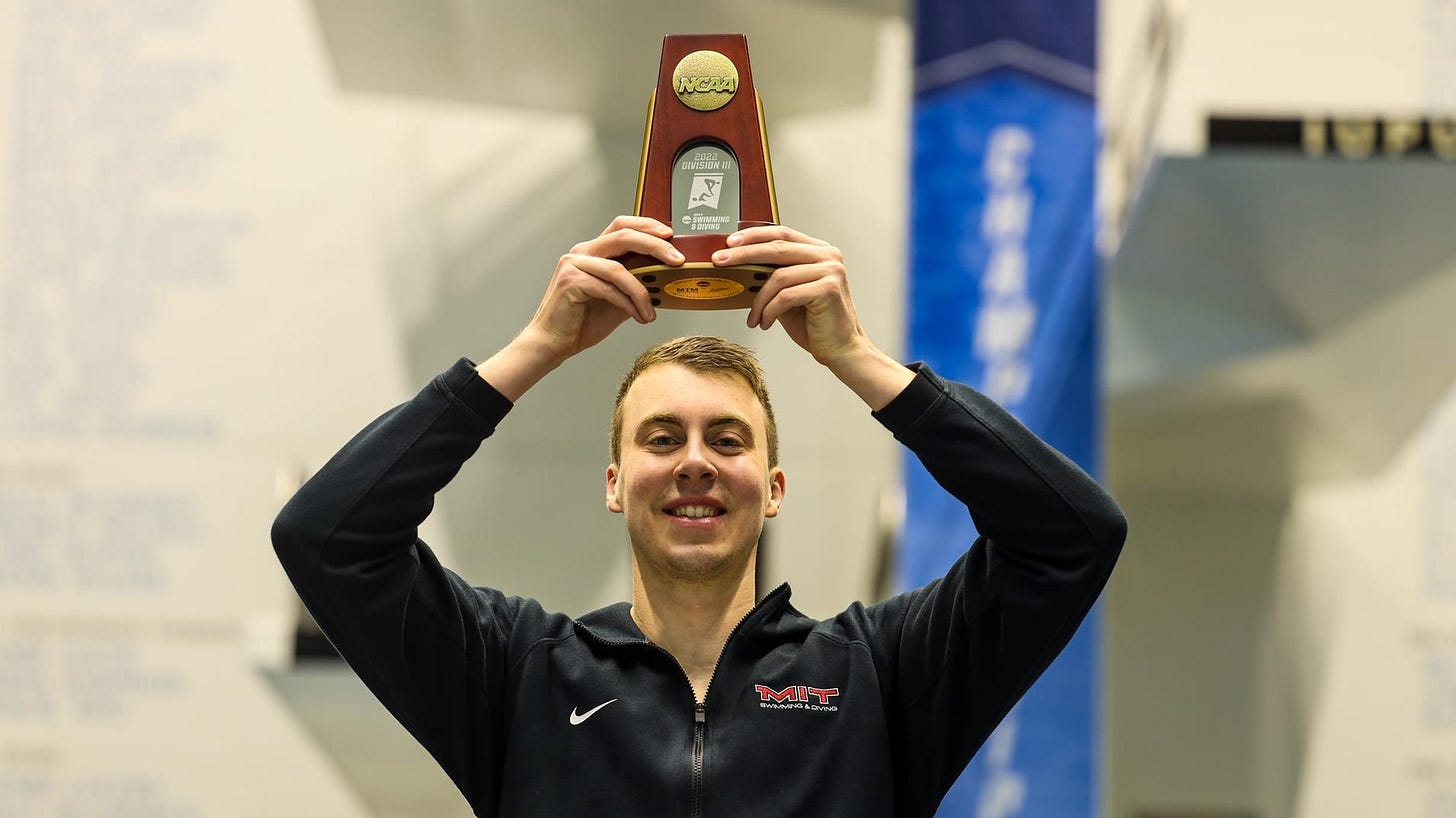







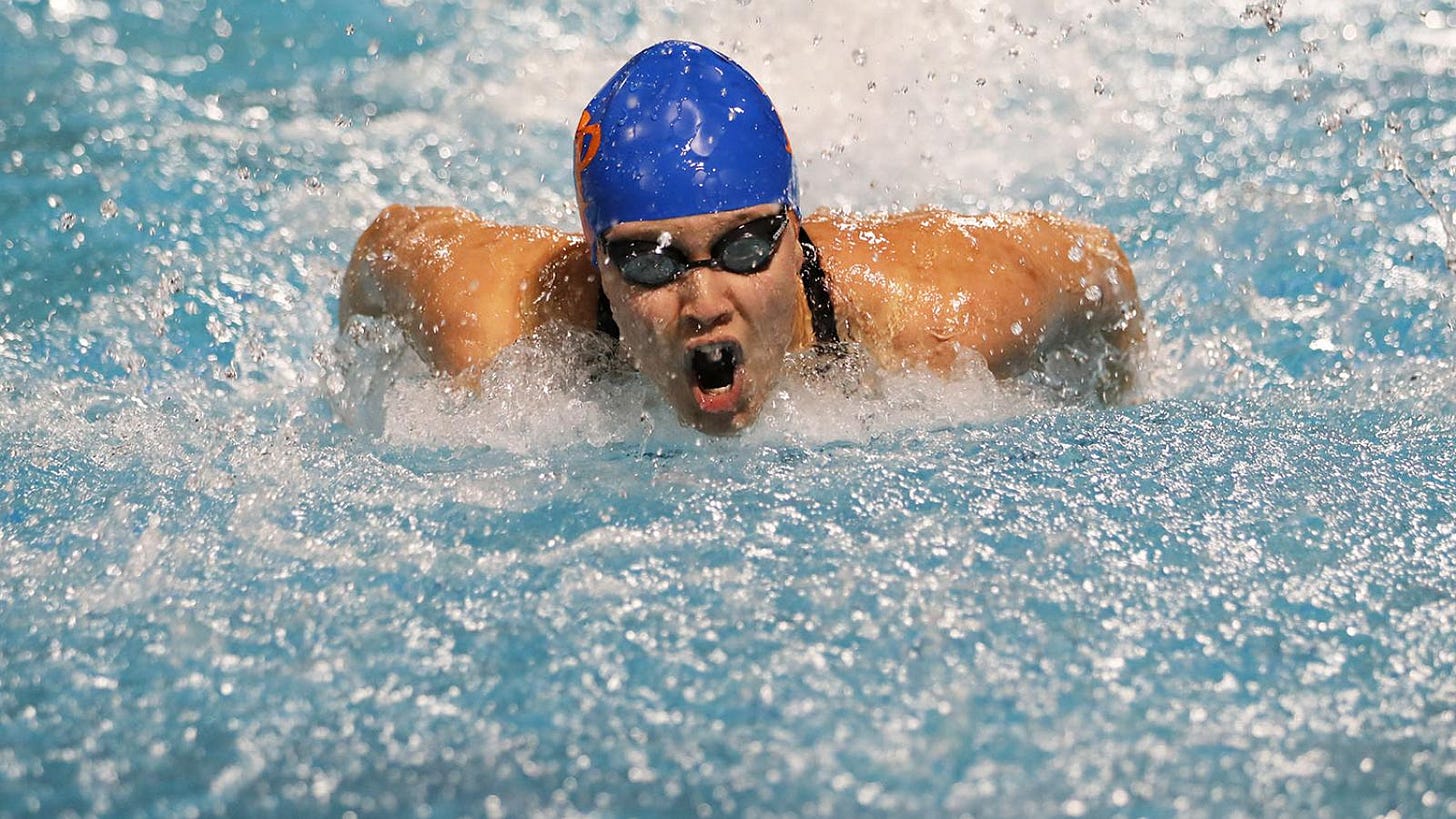

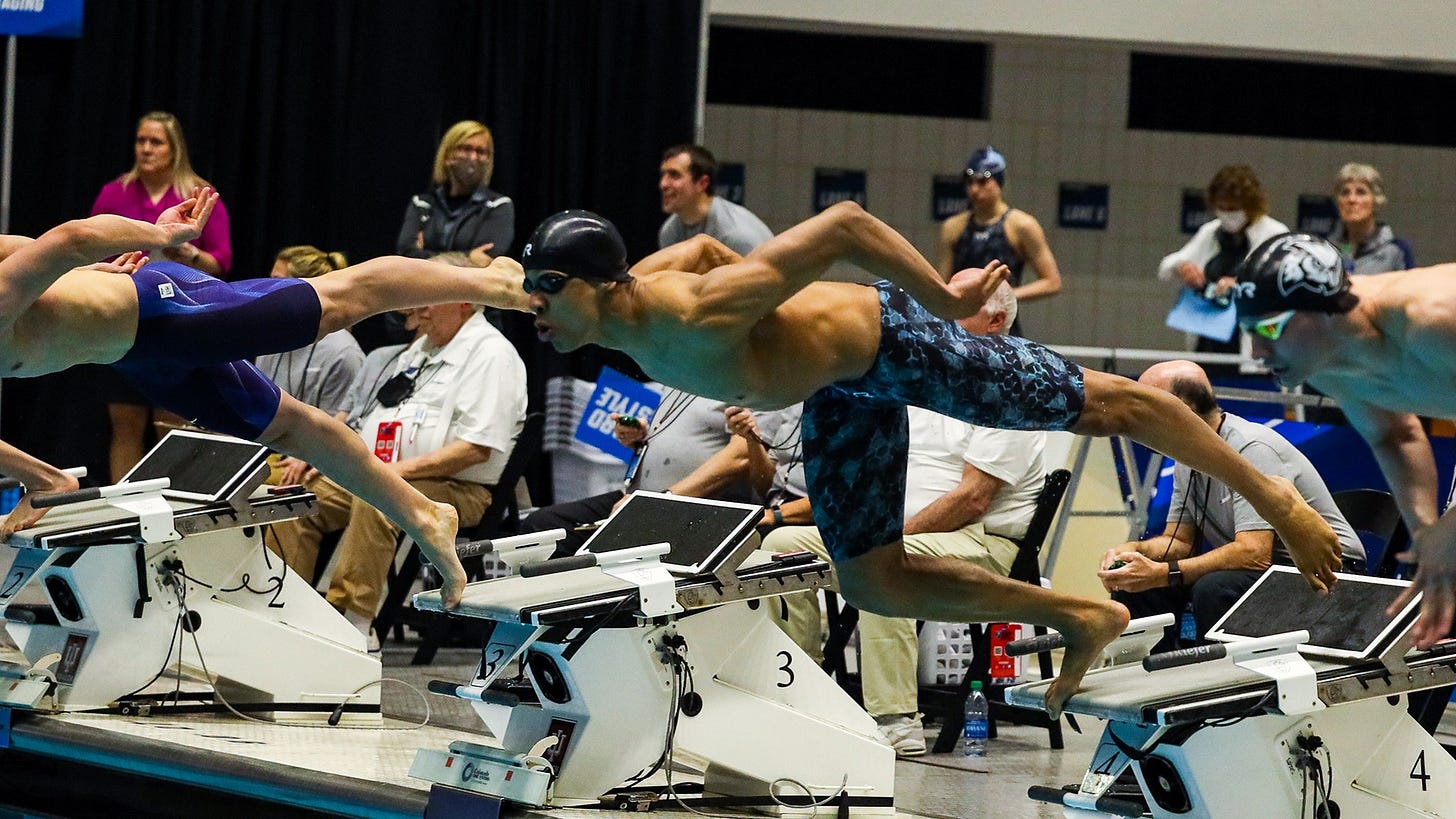


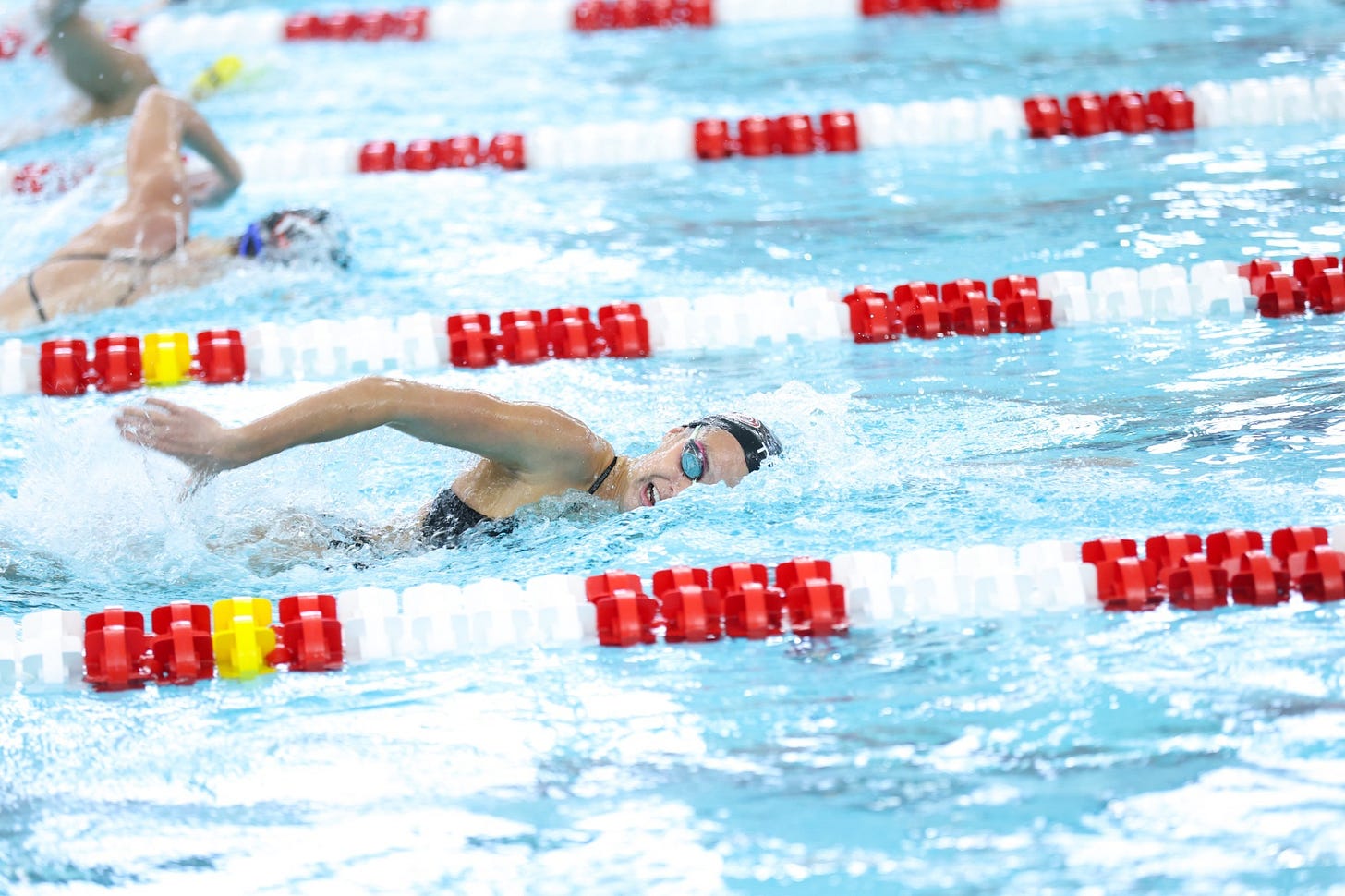

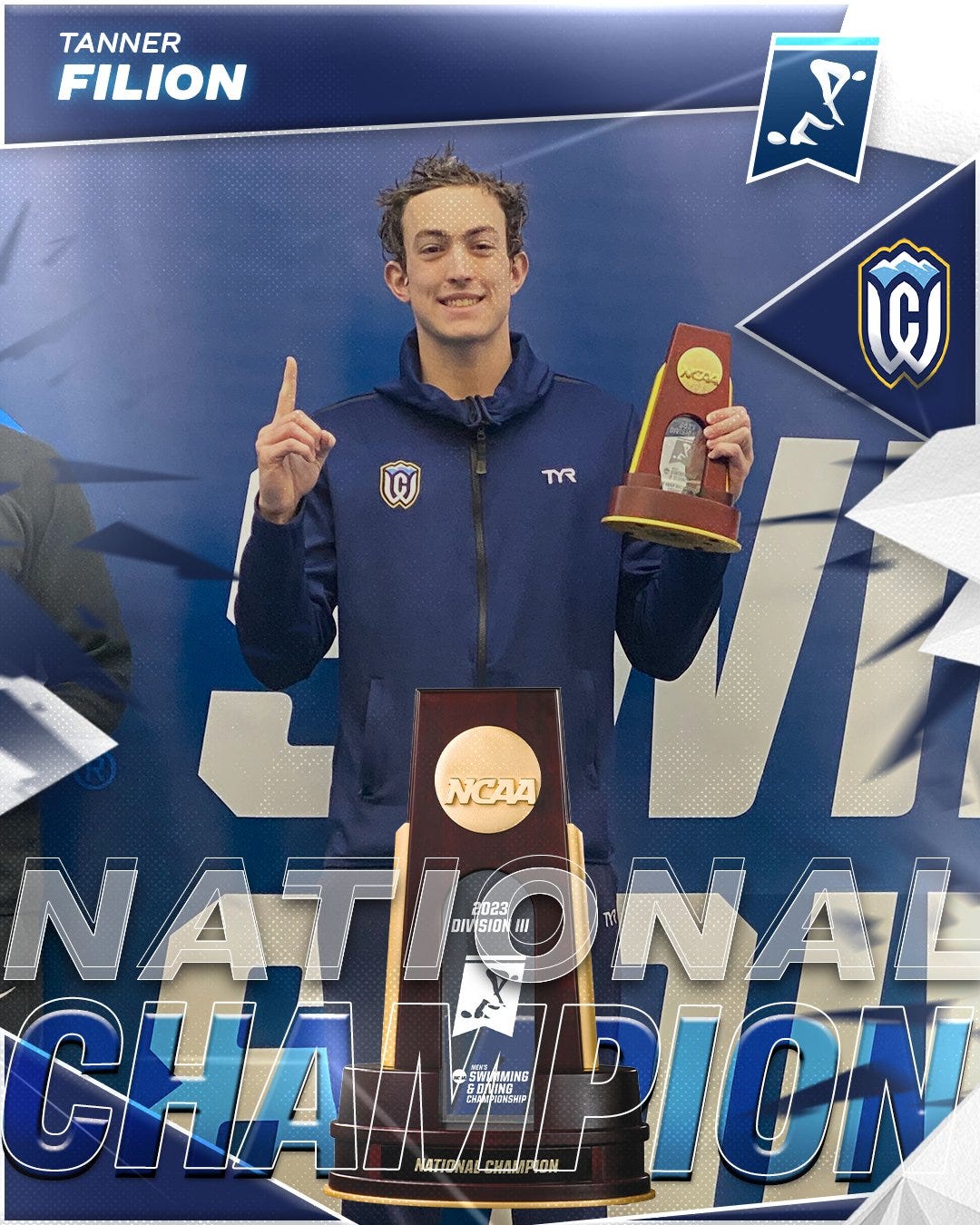
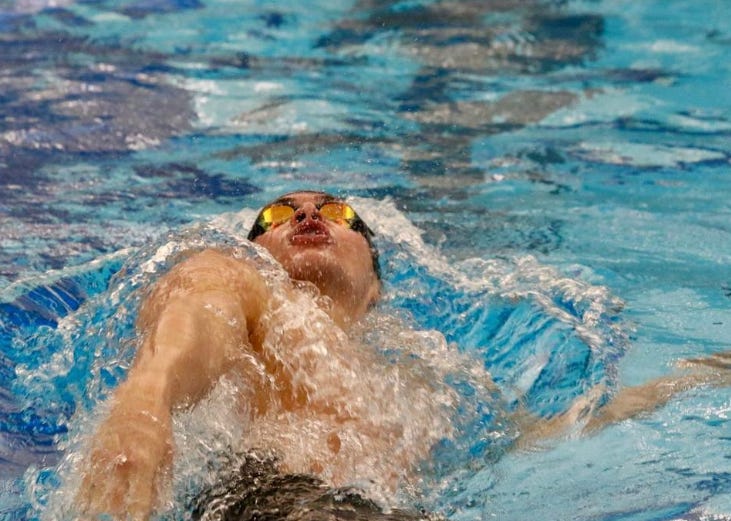
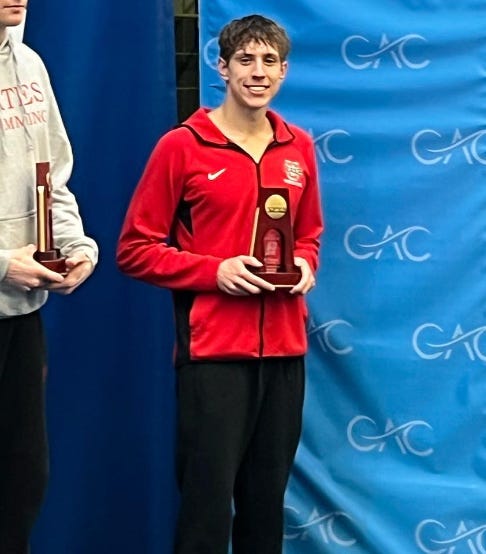

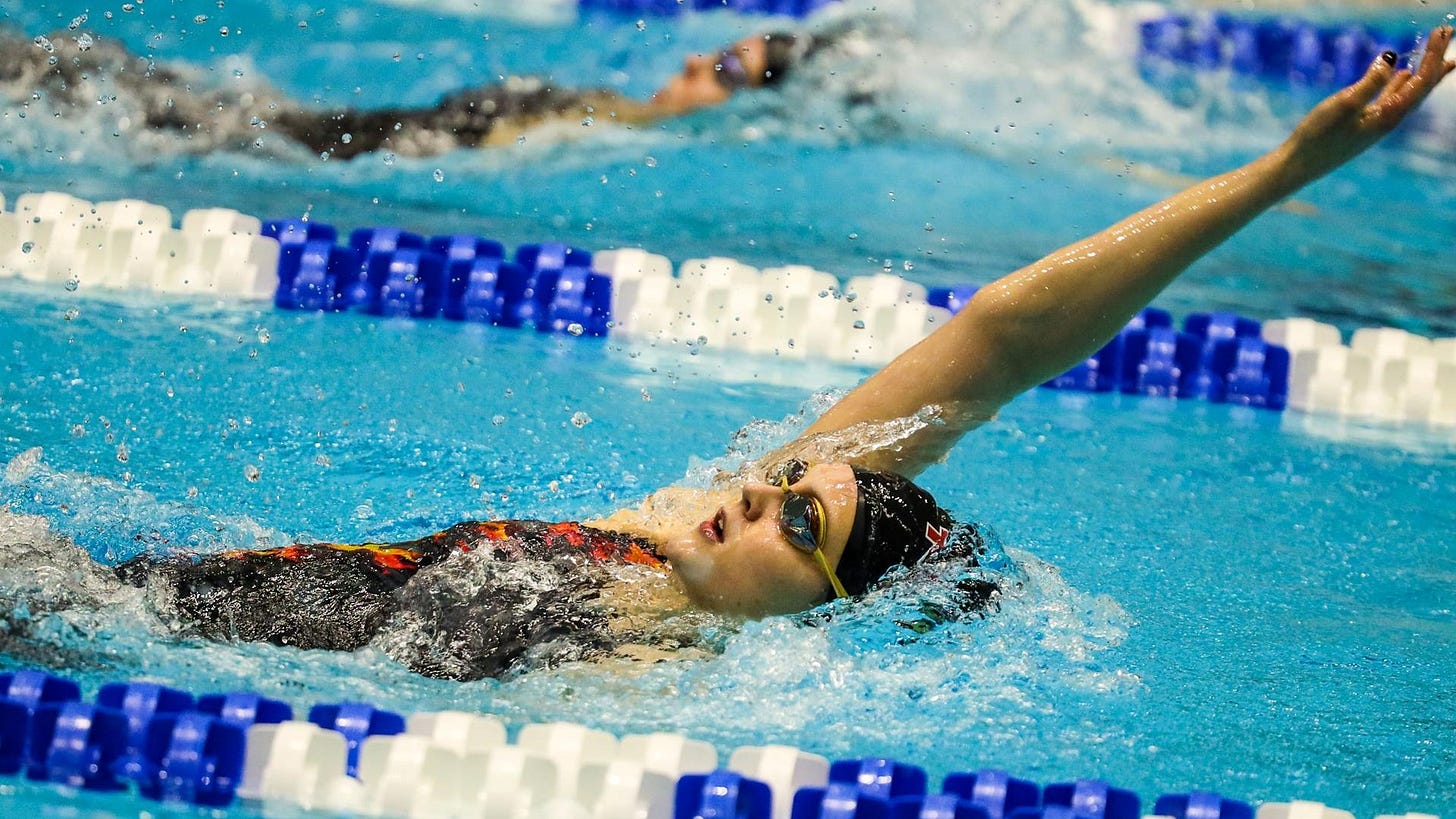
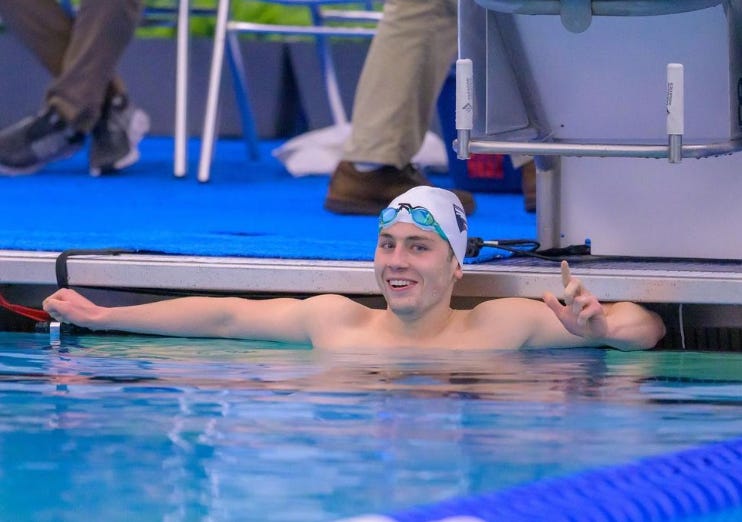
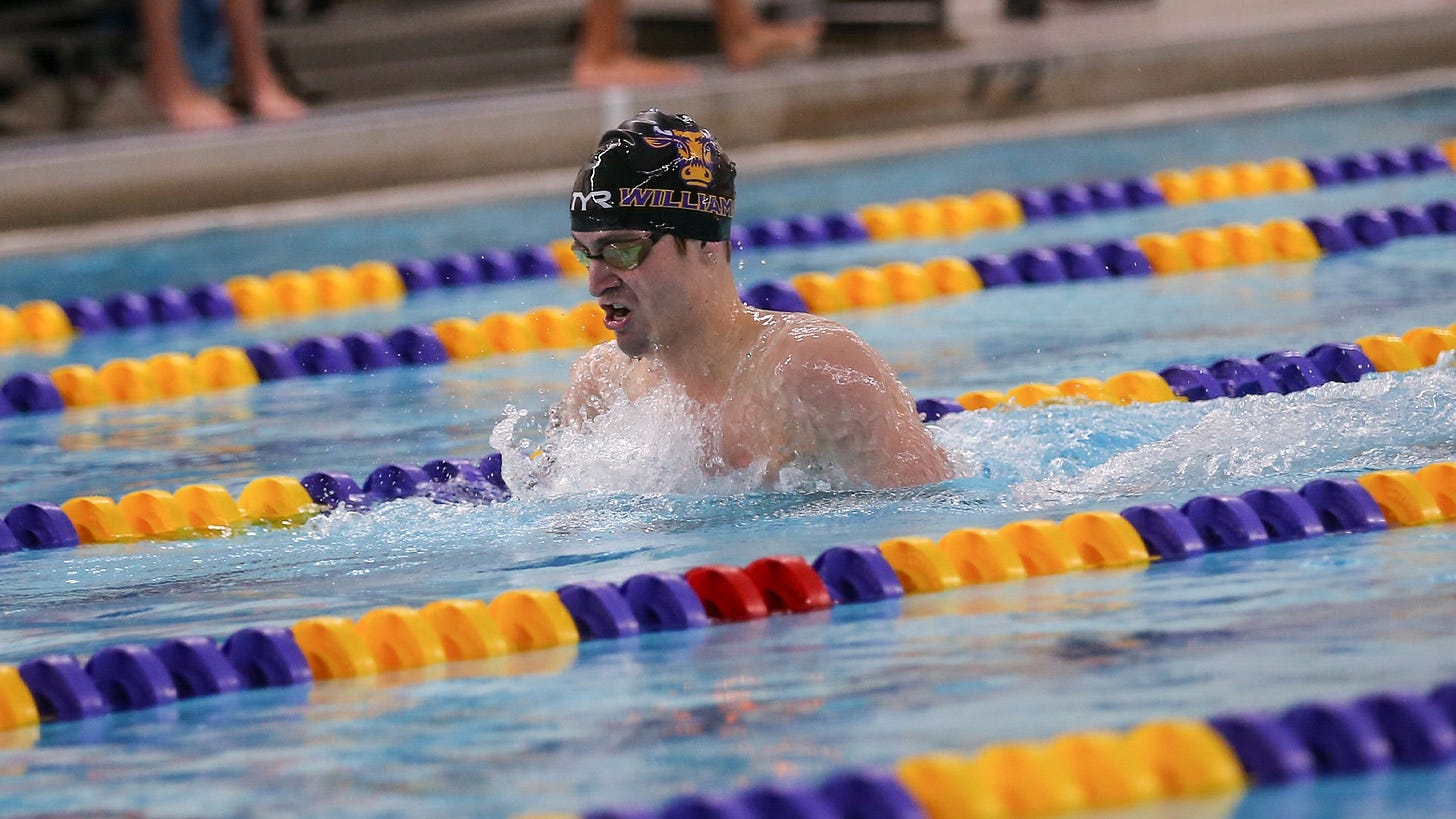
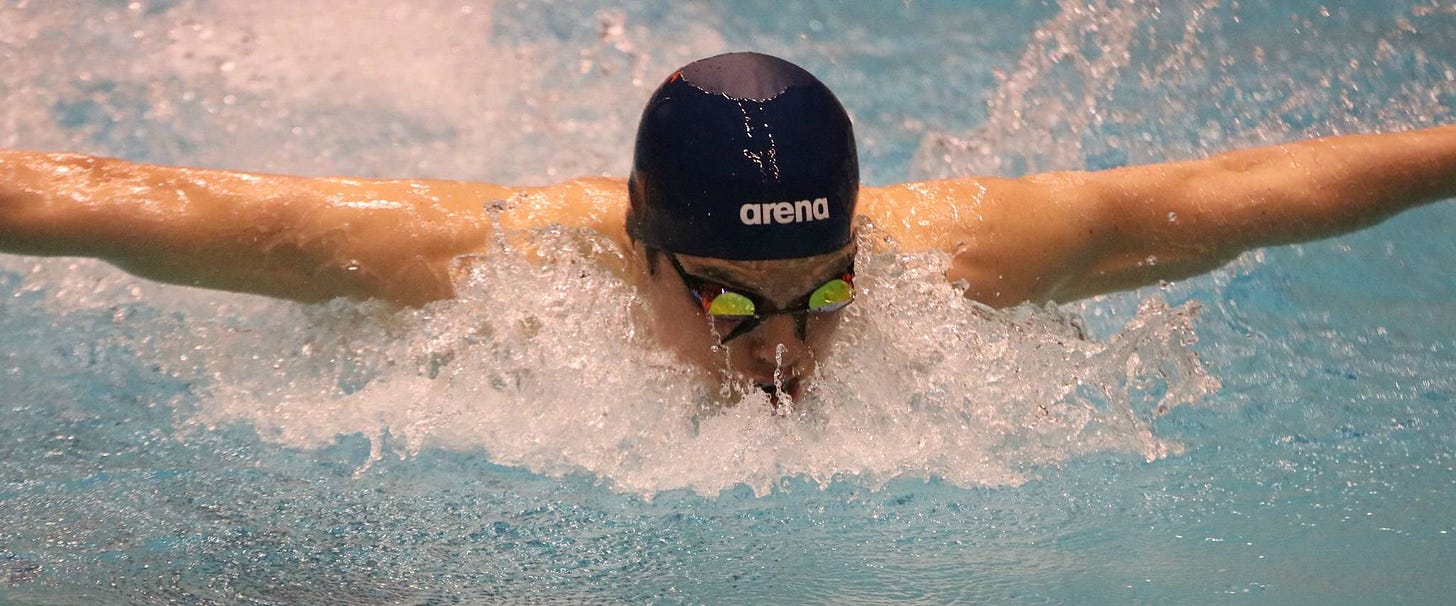
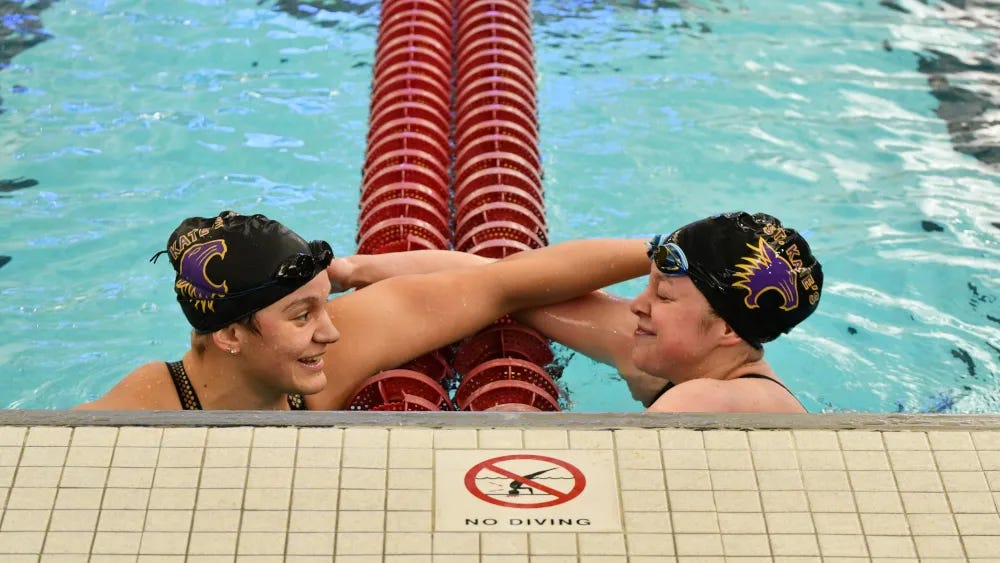
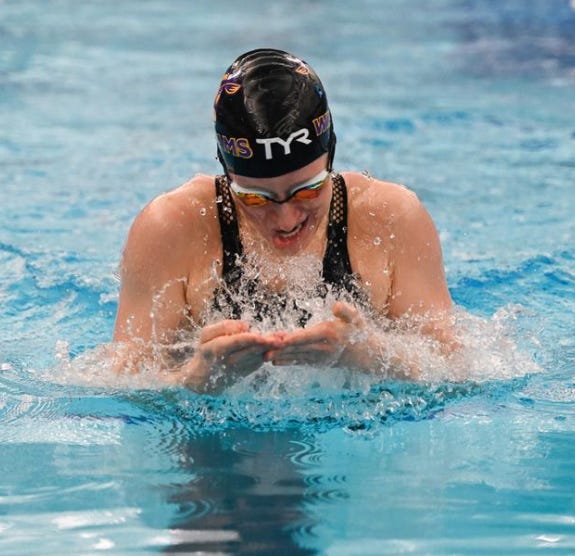

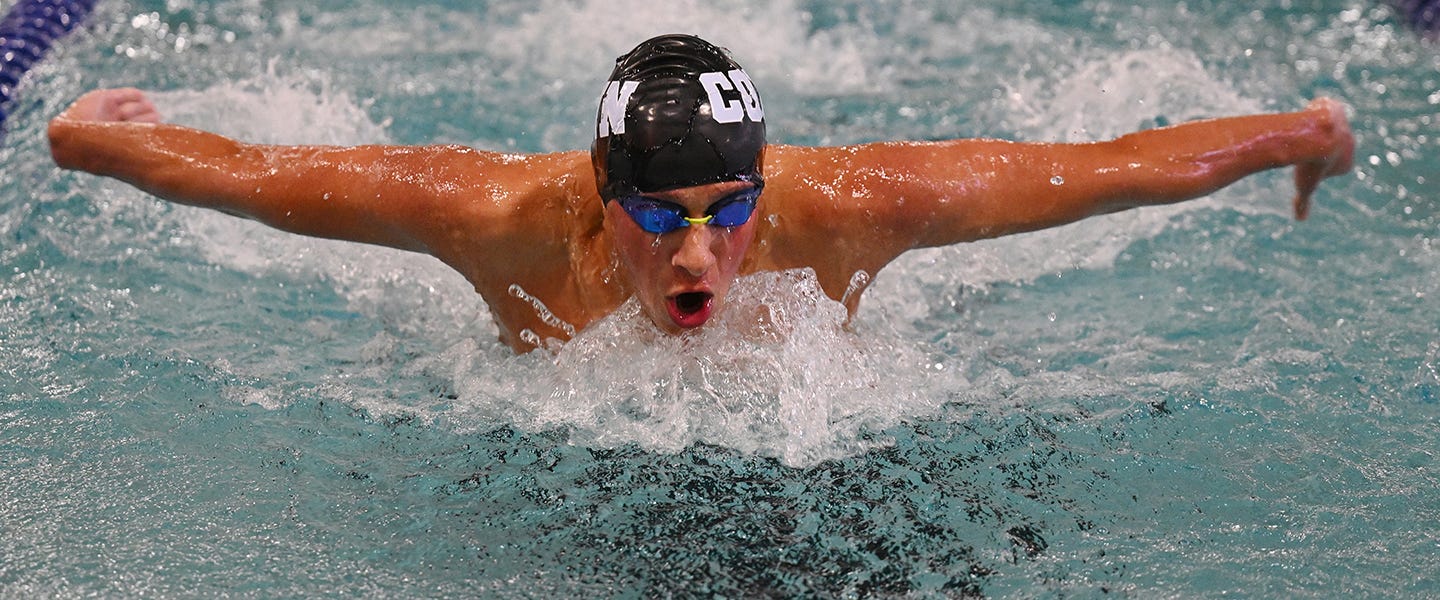
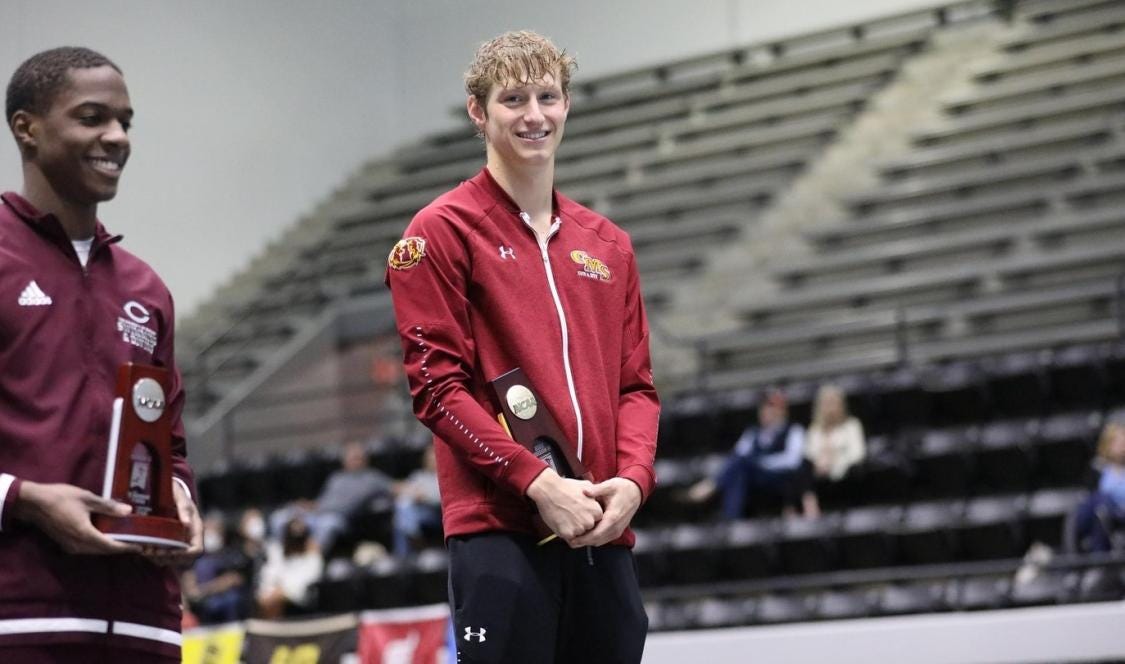
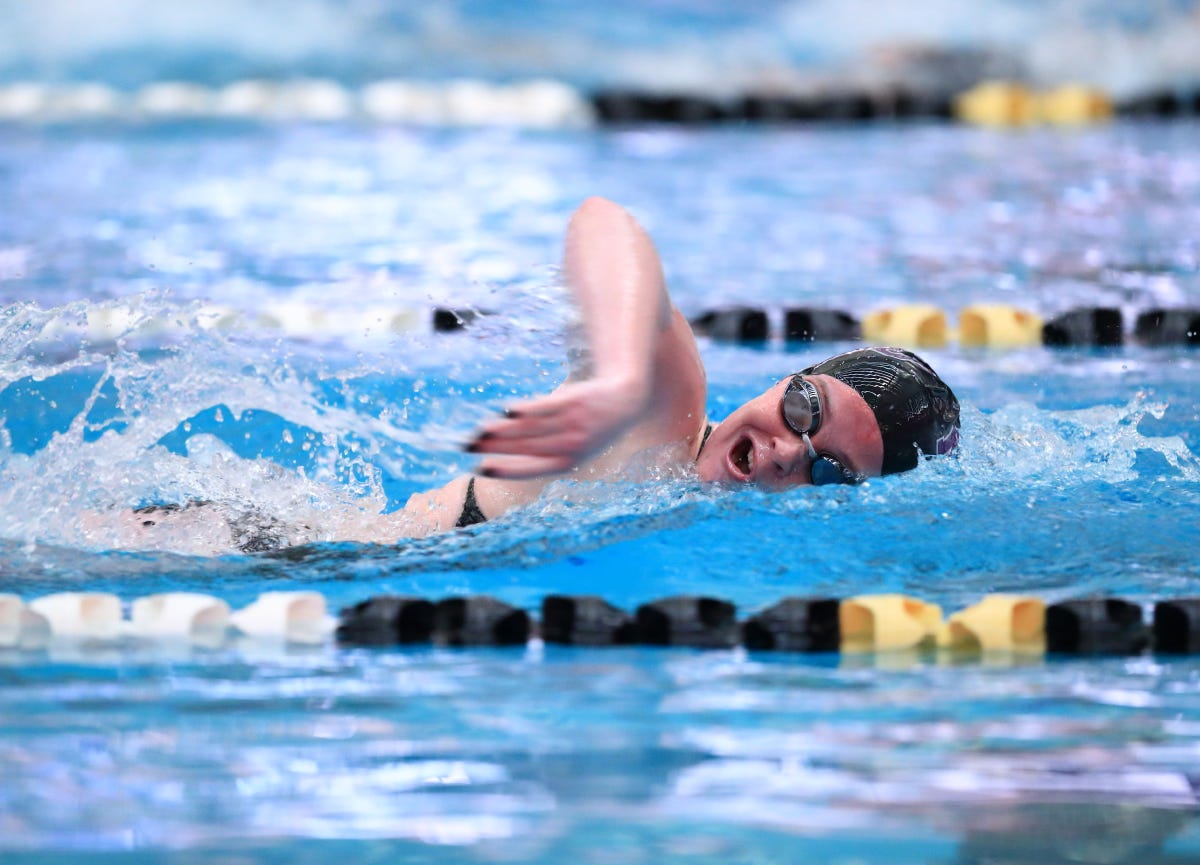

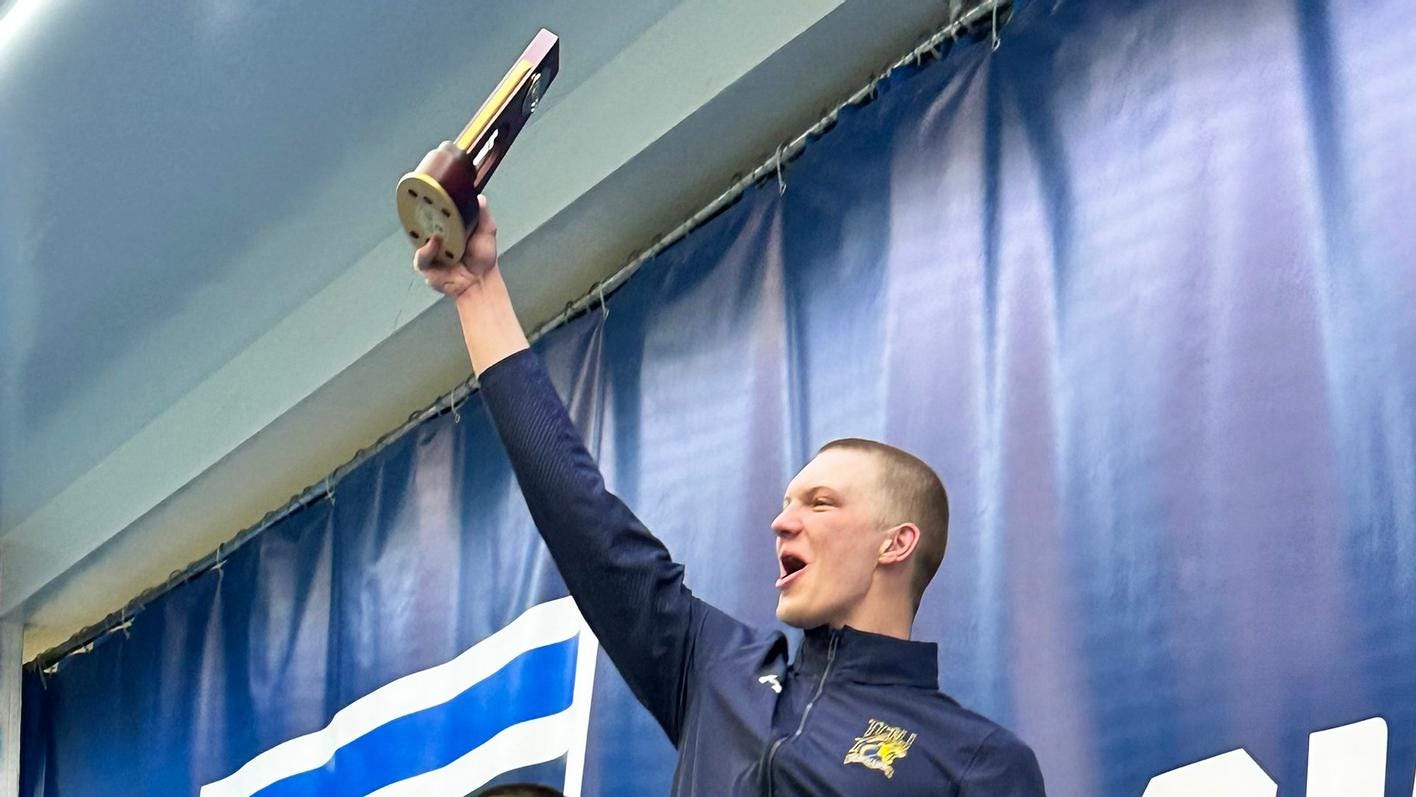

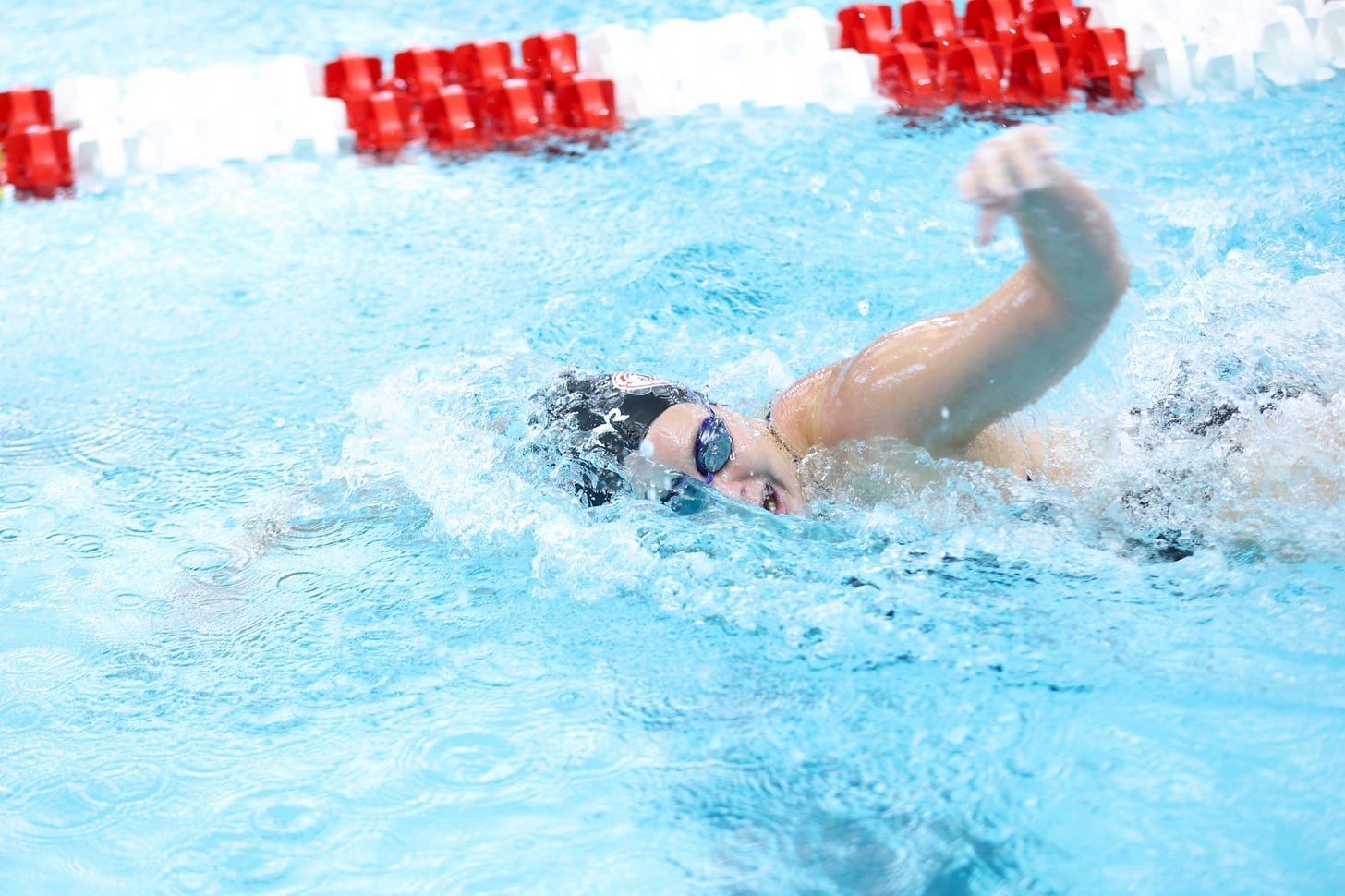
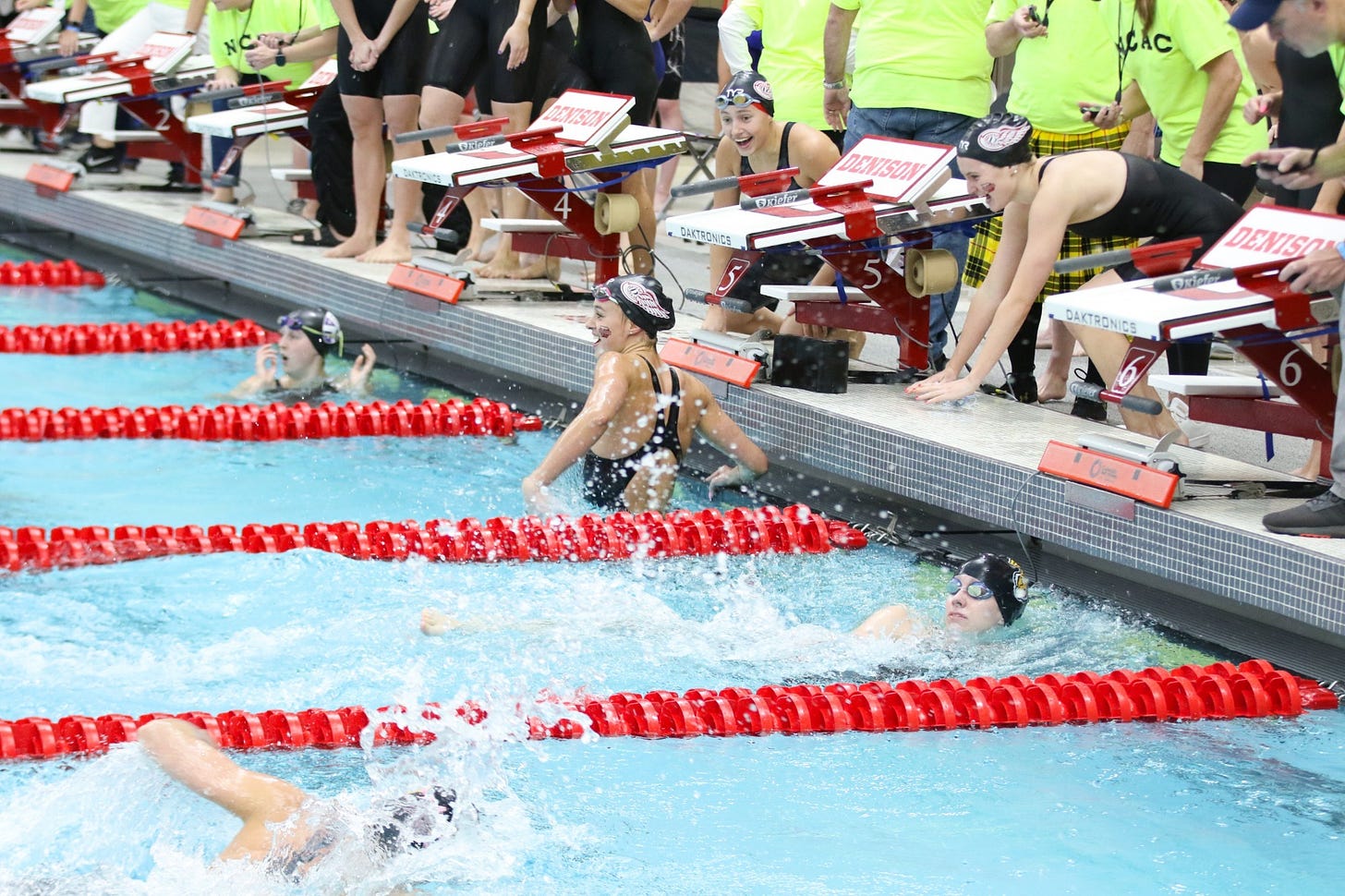




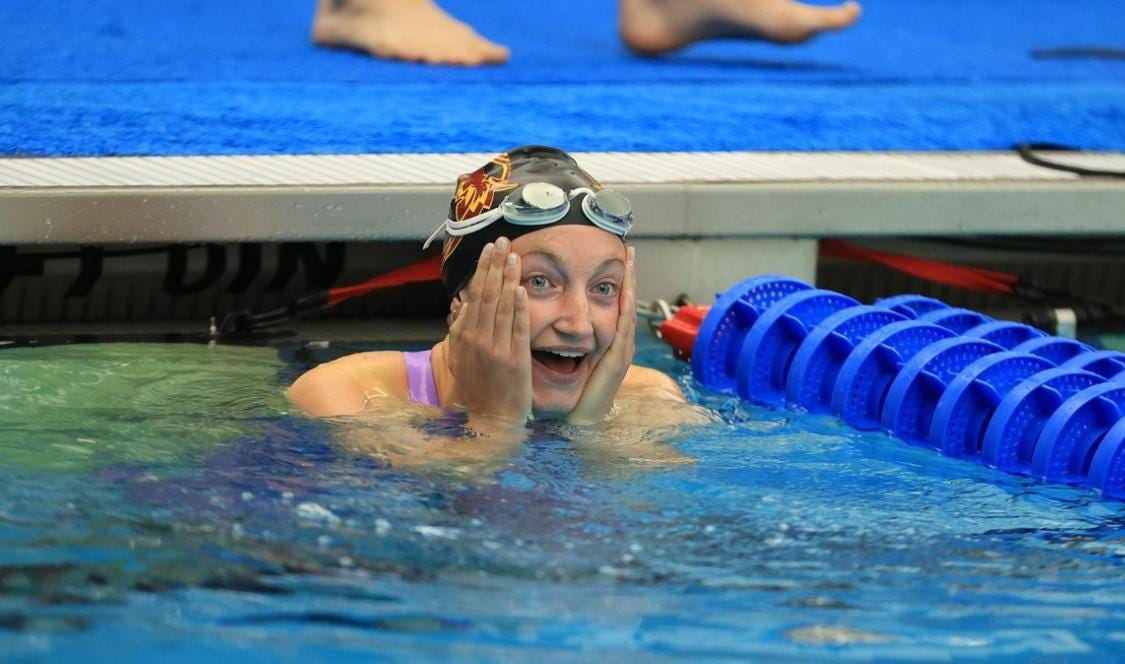
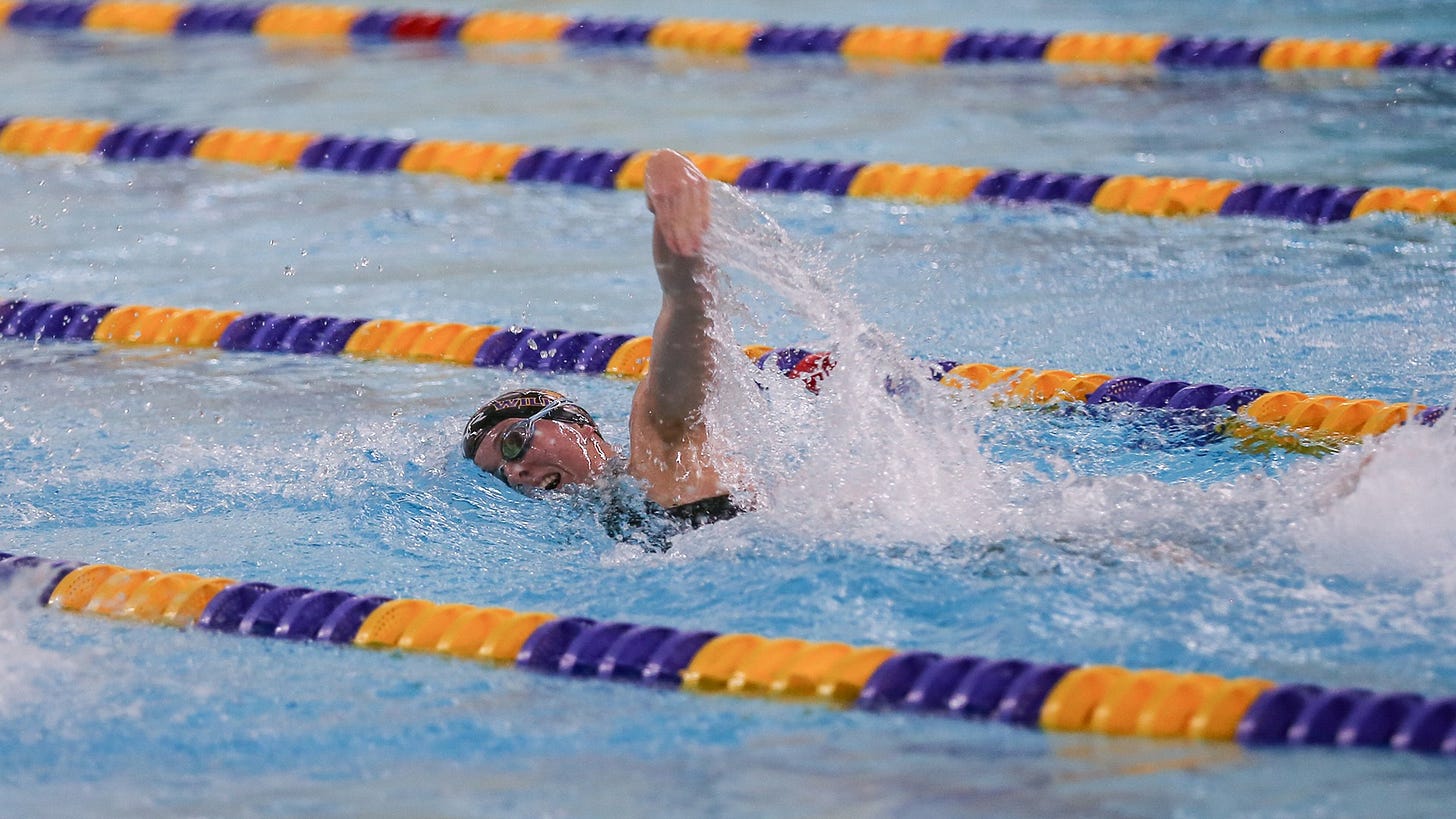



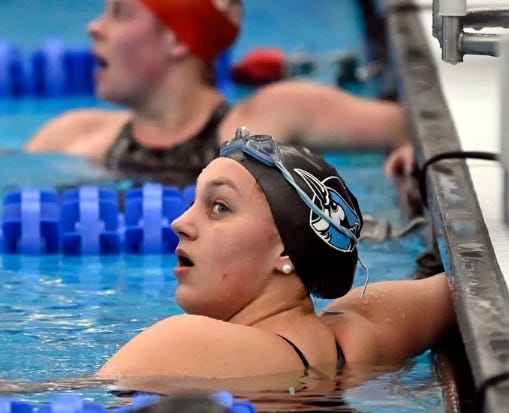
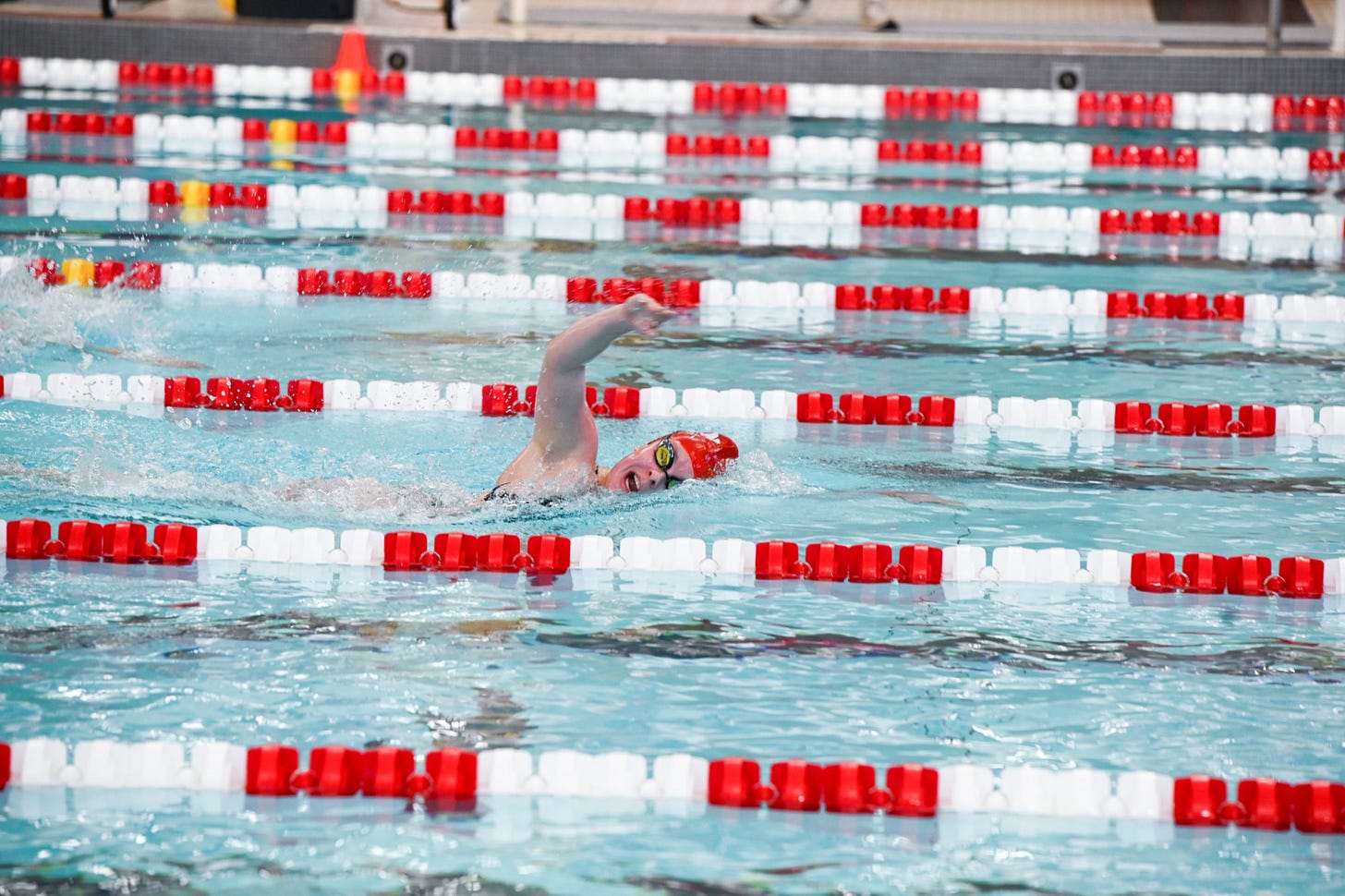
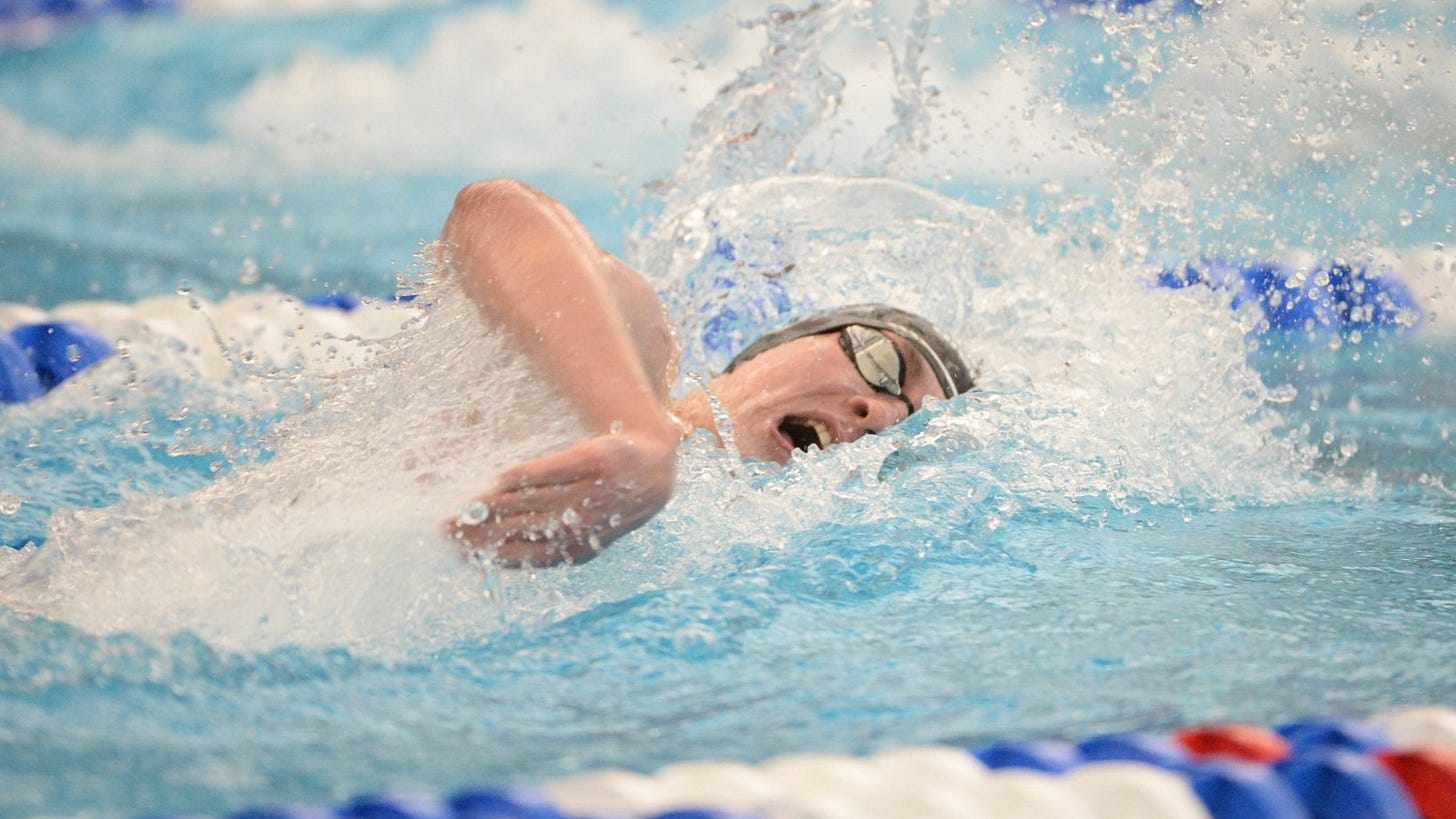
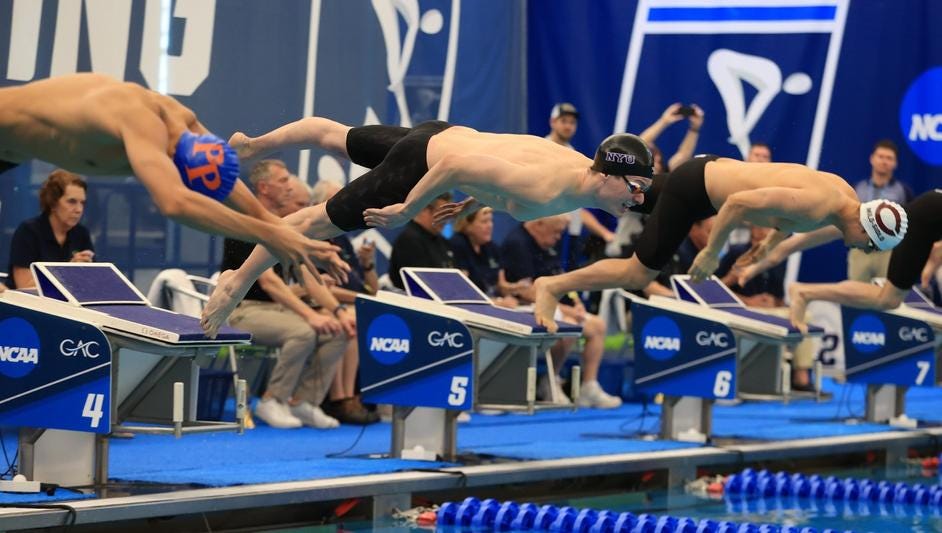
This was a nice recap, thanks for posting.
I think on the men's side it's clearly Filion by just about any metric. He posted more all-time records than anyone else (two) with times that rank well within the top 50 in D1. And in addition to those records, he got D3 top-20 all-time swims in the 200 free (1:36.54 - 8th), 100 fly (46.83 - 4th), and 50 free split from conference champs (19.21 - 12th).
On the women's side it feels like a toss-up. No individual records were set this year. Not sure when the last time is that happened! might be 10 years. But Jennah Fadely was the closest in the 100 breast (59.9 vs 59.7), and both the 100 and 200 were among the best performances at the meet. She now ranks 3rd and 2nd in those with times that stack up pretty well in D1.